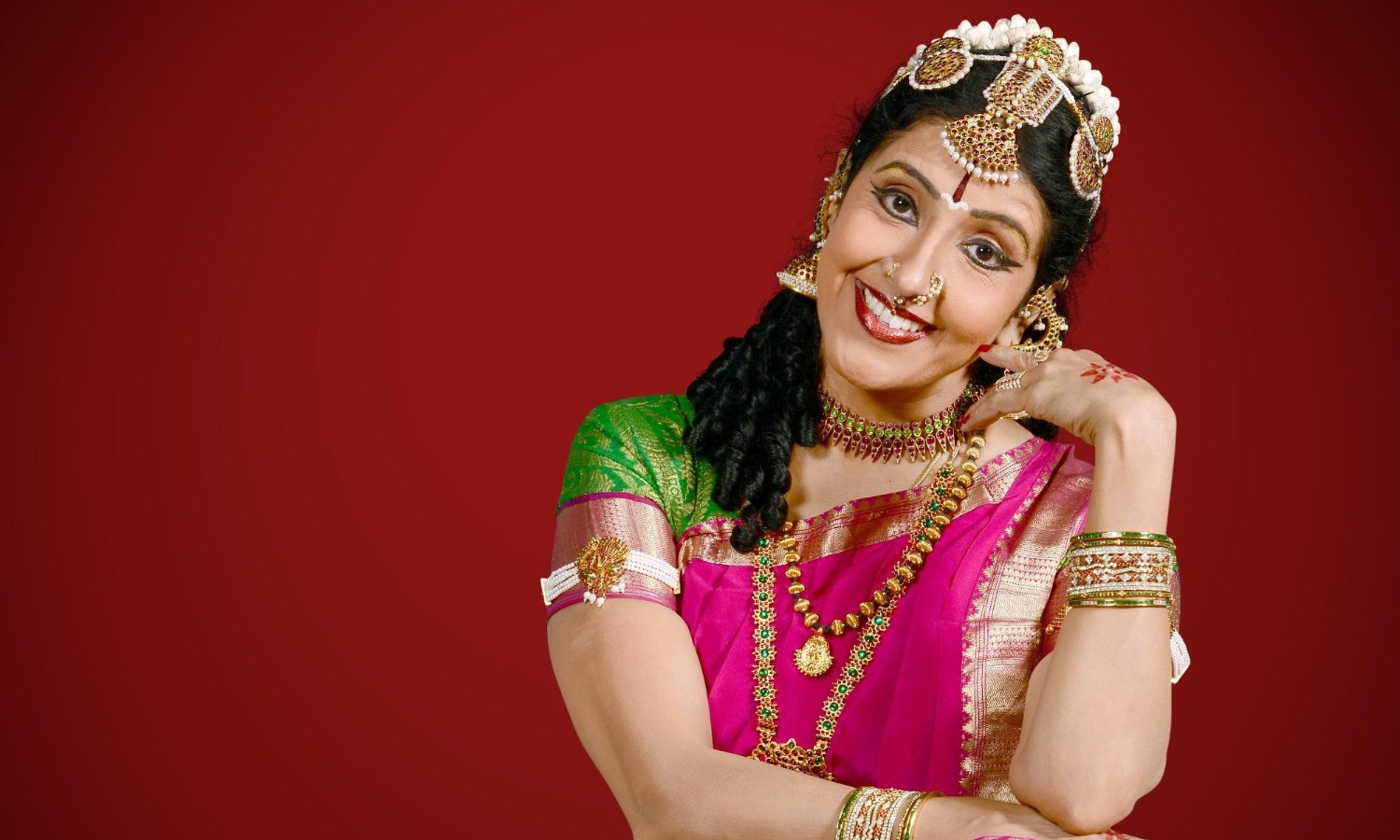‘Crucial for budding artistes to develop unique artistic voice’
The only Bharatanatyam exponent to be featured at the Paris Olympics 2024, Kalaimamani Bala Devi Chandrashekar is back in the city to enthral the rasikas this Margazhi season. In a candid conversation with DT Next, she delves deep into how the city is embracing its classical art legacy and the challenges budding artistes face in balancing tradition and contemporary expressions;

Bala Devi Chandrashekar
CHENNAI: Chennai glows differently during the Margazhi season as the city echoes with the symphony of raga and thala of Carnatic music and dance. As we are in the middle of the season, when the entire city comes alive with music, dance, and cultural celebrations, Bala Devi Chandrashekar is here in Chennai for a couple of her events.
A dedicated researcher who delves deep into ancient texts in her productions, she has performed over 300 captivating productions in more than 30 countries. “Taking subjects from ancient texts and adapting them for modern works provides a rich foundation of timeless themes, archetypal plots, and universal human experiences that can be reimagined for contemporary audiences. The enduring narratives found in classical literature continue to resonate because they explore fundamental aspects of the human condition, like love, loss, ambition, and morality,” says Bala Devi Chandrashekar.
With this comes unique challenges that require extensive understanding to present a profound production. The Bharatanatyam exponent adds, “The most challenging aspect lies in striking the delicate balance between honouring the original work while making it relevant for the modern audience. Additionally, bridging vast cultural and temporal gaps presents significant challenges, as audiences may lack the historical context required to fully grasp ancient narratives. Successful adaptation approaches include shifting narrative perspectives to highlight marginalized voices, using ancient plots as frameworks to explore contemporary issues, and incorporating modern elements while maintaining historical authenticity.”
Many of her critically acclaimed works include Nandanar Charithram, Krishnaarpanam, Vishwam: The Omnipresent, Uddhava Gita: Lord Krishna's Last Message, Tripura - Divine Feminine, Karna: Destiny's Child, Brihadeeswara: Form to Formless, and Padmavati — An Avatar.
Talking about how Margazhi culture has evolved in Chennai, the Kalaimamani awardee shares, “The city’s cultural landscape during Margazhi has adapted to contemporary times through digital streaming platforms and innovative venue choices while maintaining its core traditional elements in sabhas and temples. The season not only showcases established artistes but also provides platforms for emerging talents, creating a vibrant ecosystem where ancient art forms thrive alongside modern interpretations. This evolution is reflected in the city’s atmosphere, from early morning devotional music to elaborate kolam designs, making Chennai a global destination for classical arts during this auspicious period.”
Bala Devi also feels that budding talents are facing a challenge in striking a balance between traditional roots and contemporary interpretations. She suggests, “To ensure their art stands the test of time, dancers must delve deeper into the literary aspects of their craft and develop a strong foundation in language and music. This involves immersing themselves in rich literary traditions, studying ancient texts like the Natya Shastra, and exploring epics and religious literature that form the backbone of classical dance forms. Additionally, mastery of relevant languages such as Sanskrit and regional languages associated with specific dance forms is crucial for a deeper understanding and authentic expression. They should focus on developing their musical sensibilities by studying the principles of rhythm (tala) and melody (raga). Maintaining a strong connection to the traditional aspects of the art while also developing their unique artistic voice is crucial. This can be achieved by experimenting with new choreographies that blend classical techniques with contemporary sensibilities and collaborating with artistes from other disciplines.”
Maa-The Eternal Truth, a solo performance by Bala Devi, will be presented today at 5.30 pm at Karthik Fine Arts in Mylapore. The thematic operatic production explores and celebrates the loving nature of both Mother and Mother Earth, highlighting the profound connection between them.
She is also curating the Sangam Festival, which will attempt to establish the confluence of Indian classical music and dance from all parts of India and South Asia, while constantly exploring the possibility of collaborating with artistes from other world traditions. “It is an art initiative and serves as a resource repository of knowledge, promotion, reference, and pillar of support for the arts community in India and the United States. Activities will include performances, lectures, workshops, digital resources, mentoring, and financial support for artistes,” she says. The three-part festival is scheduled for December 31 at Bhartiya Vidya Bhavan, Mylapore.
Interestingly, the digital presentation of An Ode to the Tanjore is also being launched at the event. “This production seeks to honour and preserve the grandeur of dance compositions that form the core of the Bharatanatyam repertoire. These compositions, created by the illustrious Tanjore Quartet brothers, showcase a profound mastery of both Carnatic music and Bharatanatyam. This is a traditional Bharatanatyam Margam, continuing the Nritya Upachara series. This innovative project aims to spark a new Renaissance in the understanding of traditional Bharatanatyam, as developed by the renowned Tanjore Quartet. Under the guidance of Nandini Ramani, the production highlights specific compositions by the four brothers, Adi Ponniah, Chinniah, Vadivelu, and Sivanandam. These court musicians, trained under the Carnatic musician Muthuswamy Dikshitar, played a pivotal role in shaping the art form we know today,” explains the Bharatanatyam exponent. The launch of An Ode to the Tanjore is taking place on January 5 at Tag Dakshinamurthy Hall, Mylapore.
It should be noted that Bala Devi Chandrashekar is the only Bharatanatyam dancer to be featured at the Paris Olympics 2024. Sharing her experience from the historic event, she states, “The event served as a powerful demonstration of India’s cultural heritage at the Olympics. My performance concluded with the profound message of Vasudhaiva Kutumbakam - emphasising the concept of one earth, one family. My presentation was particularly significant as it helped bridge cultural divides and fostered a deeper appreciation for Indian classical arts among the international audience.”

